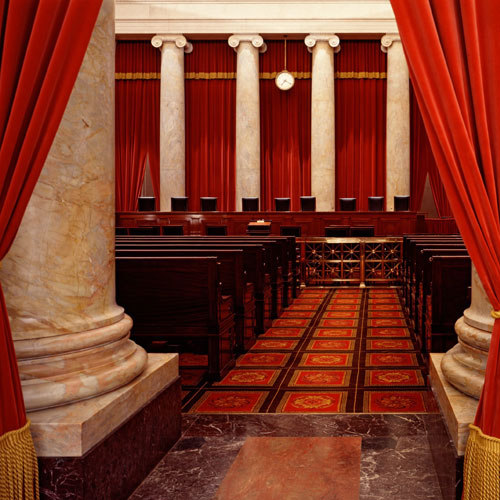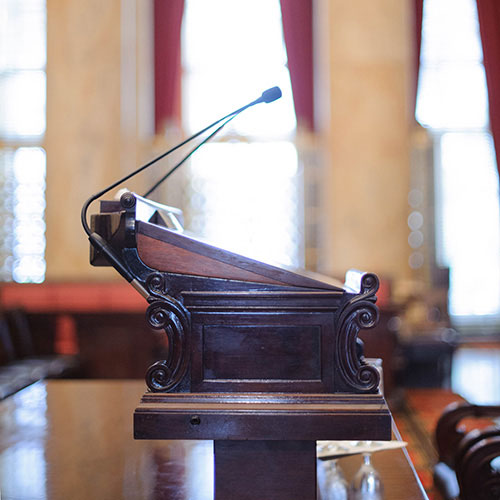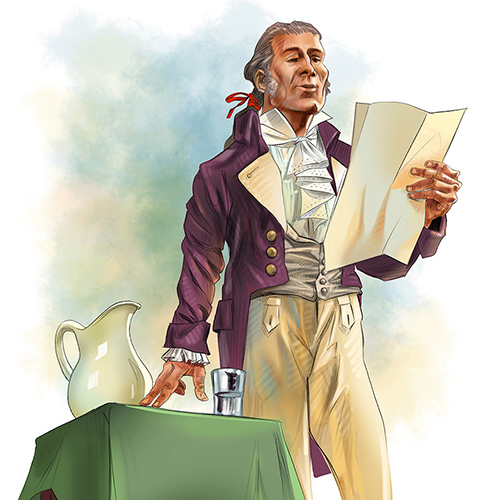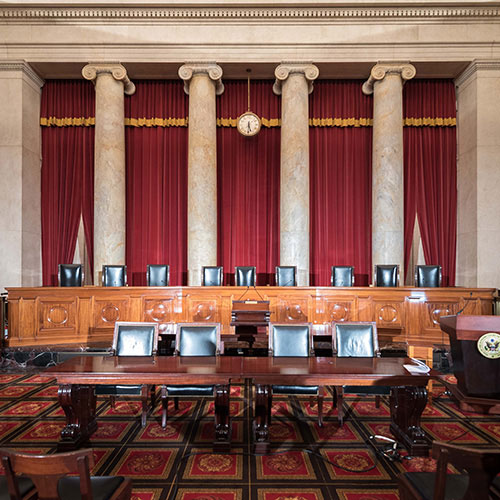Justice David Souter
A Tribute by James C. Duff, Executive Director

Justice David Souter was a simple man. Simply brilliant. Simply modest. Simply funny. Simply consistent. Simply a true friend. Perhaps most remarkable about his admirable character traits is that he maintained them unwaveringly amid resolving the most vexing and controversial legal and political issues of our day on the highest profile of public stages. It is easy to observe that David Souter embodied Oliver Wendell Holmes’ description of the Supreme Court: “the quiet of a storm center”.
Justice Souter was the opposite of what Washington D.C. had become. He was unpretentious. He was not interested in amassing power. He had no interest in “being seen” or recognized, or being the center of attention. He was not loud. He liked telling the story of having dinner out one evening in Washington and someone came up to his table and said “‘Oh, Justice Breyer, I am your biggest fan. Please tell me, who do you like on the Court?” He replied, “Well, David Souter is by far the brightest Justice on the Court.”
When I was Counselor to Chief Justice Rehnquist, one of the grand perks of the job was a coveted parking space in the Supreme Court’s garage. Its value to me was enhanced immeasurably by the fact that my space was next to Justice Souter’s. One evening, we saw each other by chance in the garage and I mentioned to him that I was extremely upset a few days earlier when I saw his car and, when he asked why, I explained that it appeared that he had his car washed and I was disappointed because I had always been able to rely on the fact that at least one car in the garage was dirtier than mine. He gave me a cold, hard stare and I thought, “Uh-oh. I’ve gone too far”. Then he stated slowly and clearly in his beautiful New England accent, “I have owned that car for 13 years and I swear to you that I have never washed that car once. It must have rained”. What a relief.
He later told me of an occasion when he drove up to the White House to meet with the President who nominated him for the Supreme Court for an event. He parked his car in the circular drive in front and thought the security guards were going to have it towed.
His time in Washington did not change him. Every Justice has a portrait made to hang in the Court upon retirement. He simply refused to sit for one. Do you know anyone else in Washington who would turn down having a portrait made of themself?
He remained innocent, especially about Washington’s politics. When we worked together on trying to persuade Congress to provide a salary adjustment to judges and Justices after years of not even receiving cost-of-living increases to their salaries, he was consistently surprised and perplexed when Members of Congress did not honor their word or commitments to him of providing legislative relief. He could not fathom how they could say one thing and do another.
He was extraordinarily well read. So much so that his family home in New Hampshire would require re-enforced support to bear the weight of his voluminous collection of books. Of the thousands of books in his collection, he was particularly fond of “The Outermost House: Life on the Great Beach of Cape Cod” written by Henry Beston in 1929. When he returned to New Hampshire, he gave me an original publication of the book which is a treasure. He often recited its opening sentence from memory: “East and ahead of the coast of North America, some thirty miles and more from the inner shores of Massachusetts, there stands in the open Atlantic the last fragment of an ancient and vanished land.” And then he would say, “If I could only write like that, I could make something of myself”.
Well. That he did. And more. In many ways, he personified the Cape Cod captured in Beston’s book. He often stood alone, a fragment of a vanishing and ancient way of life. Free from television. (He famously opposed cameras in the Supreme Court – “Over my dead body”.) Free from social media. Free from fads. Free from dogmatic approach to law.
He once recommended to me Calvin Coolidge’s autobiography which described beautifully the idyllic and simple lifestyle of growing up on a farm in Vermont. When my mother passed, I recalled a passage from Coolidge’s reverent description of his mother and cited it in my eulogy to my mother. When I shared this with Justice Souter, he sent me a tender, handwritten letter citing Washington Gladden’s “magnificent hymn”, “Behold a Sower”, written in 1904: “O light of light within us dwell, Through us thy radiance pour”. He stated that it seemed to describe my mother’s life. His too.
It is no surprise that he left Washington and the Court in his prime to return to his beloved New Hampshire. In the end, as throughout his life, Justice Souter was true. True to himself, true to his beliefs, true to his country. And our country was truly the beneficiary. There is much to learn from the way he lived.




